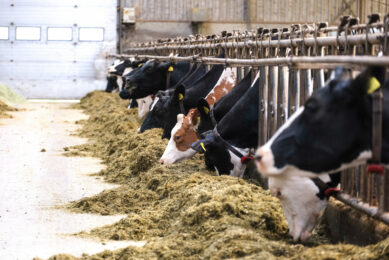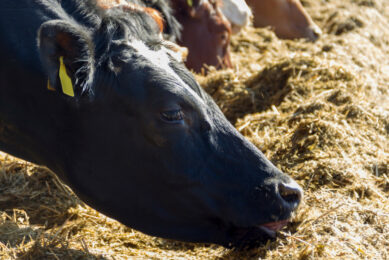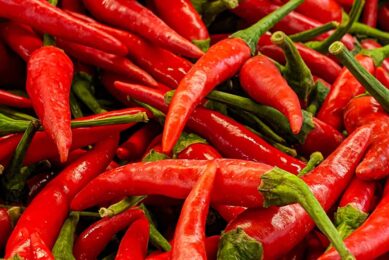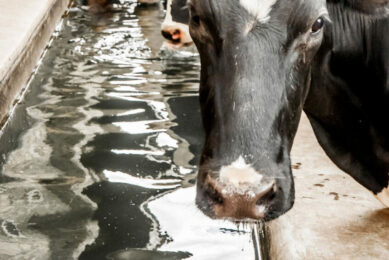Health benefits of inulin in mid-lactating cows
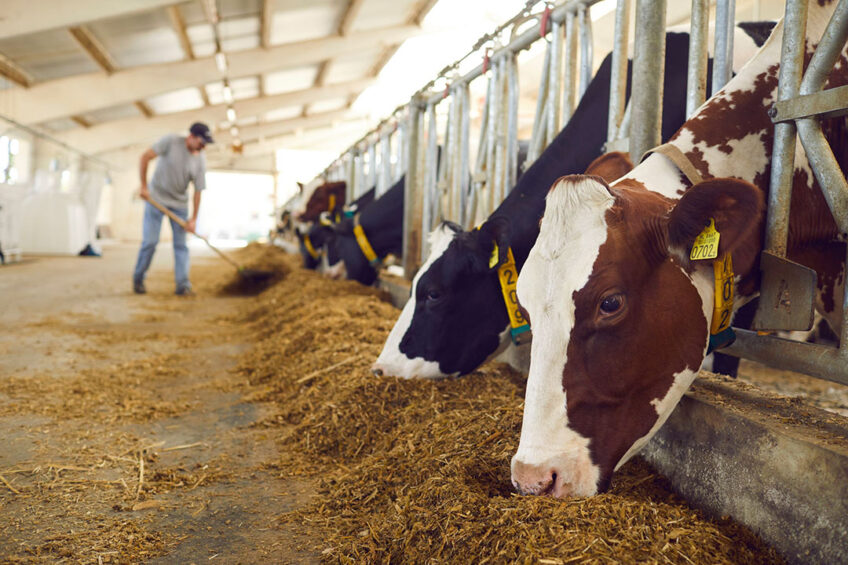
Inulin is often used as a prebiotic effective in promoting the proliferation of beneficial bacteria. A newly-published study elaborates on the health and performance benefits of supplementing inulin to mid-lactating dairy cows.
Studies show that inulin, as a prebiotic, is effective in selectively promoting the proliferation of probiotic bacteria such as Bifidobacterium and Lactobacillus and providing colonisation resistance against invading pathogens such as E. coli and clostridia in the colon.
In humans, various nutrition and health-promoting functions of inulin have been reported, including the ability to improve intestinal environment, immunomodulation, glucose metabolism, and mineral absorption. There is also evidence that inulin can reduce inflammation by directly downregulating the pathogen-induced activation of mitogen-activated protein kinase (MAPK) signalling in the intestinal mucosa.
Inulin study
This study evaluated the effects of dietary supplementation of inulin in dairy cows. A total of 36 mid-lactation Holstein dairy cows were randomly divided into 6 groups with 6 cows per group and offered a total mixed ration supplemented with either (1) control diet (0 g/day inulin per head) or (2) treatment diets (5 diets of 50, 150, 200, 250 and 350 g/day inulin per head).
The animals were pre-fed for 2 weeks before rumen fluid, milk and blood samples were collected weekly for 3 weeks. The results of the study elaborate on the benefits of inulin on rumen fermentation, lactation performance, and antioxidant and immune functions.
Rumen fermentation
Results of the study showed that inulin decreased the ruminal pH and the concentration of ammonia-nitrogen (NH3-N), while on the other hand, it elevated the concentrations of acetate, propionate, and butyrate. The concentrations of lactic acid (LA) and total volatile fatty acids (TVFA) were linearly upregulated as inulin doses increased.
The drop in pH corresponded with the elevated TVFA concentration in the rumen, which might be attributed to the shifted rumen microbiota structure and, consequently, the improved concentrations of individual VFAs (i.e., acetate, propionate, and butyrate) induced by inulin.
The researchers stated that, in their previous study, “inulin increased the relative abundances of Saccharofermentans (acetate-producing), Muribaculaceae (propionate-producing), Prevotellaceae_NK3B31_group (acetate and butyrate-producing), Treponema (acetate- and butyrate-producing), Butyrivibrio (butyrate-producing), Acetitomaculum (acetate- and LA-producing) and Eubacterium_hallii_group (propionate- and LA-producing) in the rumen of dairy cows. The proliferation of these VFAs and LA-producing bacteria may explain the linearly increased ruminal concentrations of acetate, propionate, butyrate, and lactic acid.”
They added that the elevated concentrations of these individual VFAs consequently contributed to the increased TVFA in the current study. The reduced concentration of NH3-N with inulin supplementation may indicate enhanced N utilisation efficiency in the microbial crude protein (MCP) synthesis through better energy and N synchronisation, as more readily available energy is provided by the increased VFAs.
Moreover, valerate and isobutyrate (enhanced by inulin supplementation in this study) are growth factors for cellulolytic bacteria in the rumen and are produced via the deamination and decarboxylation processes of the branched-chain amino acids.
“The quadratic increase of valerate and isobutyrate concentrations in the present study probably indicated that inulin supplementation facilitated the growth of rumen cellulolytic bacteria, which promoted fibre digestion and upregulated amino acid metabolism as described in our previous report,” they said.
Lactation performance
In the current study, inulin supplementation linearly improved milk yield, energy-corrected milk (ECM), fat-corrected milk (FCM), milk fat rate, milk protein rate and lactose concentration of the mid-lactation cows (Table 1). In contrast, inulin downregulated the milk urea nitrogen (MUN) and somatic cell counts (SCC) and had no effect on the BW of cows and milk fat-to-protein ratio.
Increased milk production was attributed to the increase in TVFA, which provides extra energy and substrates for milk synthesis. The researchers suggested the elevated milk fat level is a result of the increased ruminal acetate and butyrate concentrations, which act as the main precursors for de novo milk FA synthesis, while the trend of increased milk protein content could be derived from the enhanced MCP synthesis through better energy and N synchronisation; this is evidenced by the linear increase in total VFAs and decrease of ruminal NH3-N and MUN concentrations, as observed in the current study.
Talking of MCP, researchers from the US Dairy Forage Research Center reported that the MCP yield could be 20% greater for inulin compared with glucose when fermented in vitro with ruminal microbes.
The observed increase in milk lactose concentration was related to the elevated ruminal propionate concentration in the current study. Propionate is a contributor to gluconeogenesis in the liver, while the resulting glucose is a precursor to the synthesis of lactose in the mammary gland. On the other hand, the reduction in milk SCC with increasing inulin doses reflected the reduction in the inflammatory response in the udder and indicated possible enhancing effect of inulin on the immune function and disease resistance in dairy cows.
In addition, inulin supplementation reduced the proportion of monounsaturated FA (MUFA), indicating reduced lipidic reserve mobilisation. On the contrary, inulin increased the proportions of polyunsaturated FA (PUFA); a higher proportion of PUFA in milk fat is desirable, from the perspective of human health against cardiovascular diseases, indicating the potential benefit of inulin in promoting beneficial milk FA profile.
Enhanced antioxidant and immune function
The results of the current study indicated that dietary inulin supplementation enhances the ability to resist oxidative stress and improves the immune system in dairy cows (Table 2). The decrease in MDA (an indicator of lipid peroxidation) and increase in activity of antioxidant enzymes superoxide dismutase (SOD) and glutathione peroxidase (GSH-Px) with inulin addition corresponds with a higher antioxidant status. SOD and GSH-Px are key enzymes of the antioxidant system that scavenge free radicals – resisting oxidative damage and maintaining cell structure.
Inulin acts as a cofactor of immune stimulation’ as was observed with increases in serum antibodies involved in humoral immunity (IgG and IgM). In line with antibody stimulation, inulin enhanced the production of cytokines (Interleukin-2, IL-2 and Interleukin-10, IL-10) involved in regulating the immune system. Interleukin-2, mainly secreted by CD4+ T lymphocytes, promotes T cell proliferation and mediates cellular immunity, while IL-10 is broadly expressed by many immune cells of both the adaptive and innate immune systems, playing a crucial role in mediating host anti-inflammatory response. The improvement in the immune system is also supported by the observed decreases in milk SCC.
In conclusion, the researchers stated: “Dietary supplementation of inulin effectively improves lactation performance, rumen fermentation, and antioxidant and immunity function in dairy cows in a dose-dependent manner. However, the mechanisms of inulin in rumen biohydrogenation still need further investigation.”



